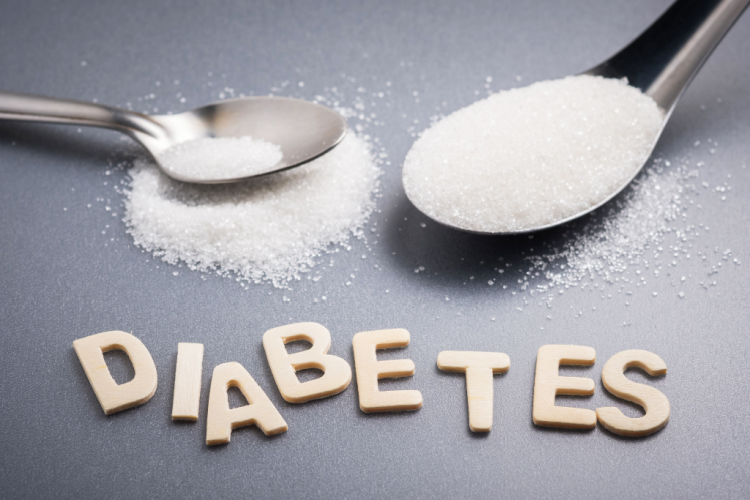Probiotics: Improving Your Gut Health
Much has been said by doctors regarding the importance of our gut microbiome and its influences on our health. But did you know that you can influence your own microbiome as well?
Today we know that one-third of the gut microbiome is consistent among adults, while the other two-thirds are influenced by the environment, dietary patterns, physical activity, medications taken, and one’s health condition. As you can see, many of these factors we can help influence ourselves. One way to do so is through the use of probiotics. This article will investigate how specific probiotic strains can affect type 2 diabetes and overall gut health.

Type 2 Diabetes has a new path
Regardless of the precautions one takes, having type 2 diabetes often calls for additional support by making the microbiome vulnerable. Probiotics provide a solid solution, and new evidence is supporting their ability to manage blood sugar spikes and prevent the onset or worsening of gut dysbiosis for those with metabolic syndrome.
The ground-breaking research showcases a connection between the gut microbiome and type 2 diabetes. Moreover, the research has uncovered the specific bacterial strains required to restore gut function needed for blood sugar balance. Those with type 2 diabetes often show a deficiency in the number of bacterial strains that can be restored with the first medical probiotic designed, known as Pendulum Glucose Control. It does so by managing the A1C and blood sugar levels and by addressing the following gut microbiome imbalances:
1. Strains that aid in enhancing the gut lining
2. Strains producing beneficial postbiotic, butyrate
Butyrate, one of the several short-chain fatty acids in your gut, plays a vital role in preventing sugar spikes. It is further important to understand that these chains are made when specific probiotic bacteria break down and digest prebiotic fibers in the gut. The combination of five targeted “beneficial bacterial strains” along with prebiotics is delivered by each capsule of Pendulum Glucose control into the gut microbiome.
Below are the five probiotic strains and a prebiotic in Pendulum Glucose Control that help support the production of short-chain fatty acids such as butyrate:
• Akkermansia muciniphilaWB-STR-0001
• Anaerobutyricum hallii WB-STR-0008
• Clostridium butyricumWB-STR-0006
• Clostridium beijerinckiiWB-STR-0005
• Bifidobacterium infantisBi-26 or SD-6669
• Chicory inulin (prebiotic)
The strain most beneficial to improving overall gut microbiome health is Akkermansia muciniphila. This strain has been formulated independently and functions in Pendulum Glucose Control. More on this keystone strain to follow.

Akkermansia is a keystone strain in the gut
Again, Akkermansia may be taken on its own if you are trying to optimize gut function. Akkermansia thrives in the gut (making for up to 4% of intestinal bacteria) and helps balance the gut mucus layer. All of this to maintain a healthy ecosystem of beneficial bacteria within the gut microbiome. This is why those with a less-healthy gut will have less Akkermansia. How exactly does it help? Understand that the intestinal lining is comprised of epithelial cells, and these are covered in a mucin-rich mucus layer. Akkermansia consumes mucin for energy which then encourages epithelial cells to produce more mucin. The additional mucin helps strengthen the intestinal wall, a key component for overall health.
The tricky part regarding Akkermansia is that up until recently it has furthermore been near-impossible to find and consume. It is not significantly present in any foods. Moreover, manufacturing Akkermansia presents challenges because Akkermansia is an anaerobic strain that needs to be grown in an oxygen-free environment.
The best way to get Akkermansia is therefore the Pendulum created pills. A daily dose of both Pendulum Glucose control and Akkermansia contain live AFUs (the bacteria equivalent of CFUs) at recommended amounts if properly stored.

From Probiotics to Lifestyle
Regardless of the potential health benefits that Pendulum Glucose Control and Pendulum Akkermansia can bring about, people still need to be cautious of consuming them unnecessarily. Below is a list of foods that are polyphenol-rich, and which have been proven to complement probiotic use. Keep in mind that small changes can bring forth significant results. It is important to make sure that changes regarding health come with little risk of harm. That being said, no one should have to tolerate abdominal pain, bloating, heartburn, nausea, constipation, and loose stools.
• Apples
• Beans
• Berries
• Cloves
• Cocoa powder
• Coffee and teas
• Dark chocolate
• Flaxseed
• Grapes
• Green tea
• Nuts
• Olives
• Peppermint
• Plums
• Red wine
And prebiotic fibers will feed Akkermansia specifically and help repair and strengthen the gut:
• Asparagus
• Bananas
• Barley
• Chicory root
• Dandelion greens
• Flaxseeds
• Garlic
• Leeks
• Jerusalem Artichoke
• Jicama Root
• Oats
• Onions
• Seaweed
• Soybean
• Yacon root
• Wheat bran
